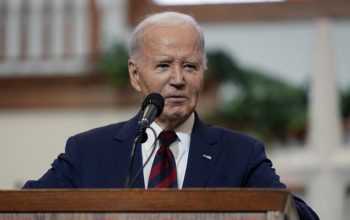news
GFDD & FUNGLODE Host the Release of the Book ‘Fundamentals of the Dominican Voluntary Sector’ by Ms. Megan Beddow
February 16, 2018
Seeking to enhance the dialog about the role and importance of Non-Governmental Organizations in the Dominican Republic and worldwide, GFDD & Funglode hosted the release of the book “Fundamentals of the Dominican Voluntary Sector”, at UN Church Center on Thursday, February 15th. The presentation is the last addition to the publication series; Research and Ideas. It outlines the findings of a study carried out by the 2015 GFDD Research Fellow,
Megan D. Beddow, which aim to analyze the external environmental factors and internal organizational characteristics that shape the NGOs of the Dominican Republic while illustrating the classic evolution of the voluntary sector in a developing country.
Mrs. Yamile Eusebio Paulino, Acting
Co-Executive Director of GFDD, welcomed the attendees and gave an overview of the organization interest in promoting publications and research projects that address critical international issues from local to global perspectives. In addition to Megan D. Beddow, the event included the participation of Mr. Liberato C. Bautista and Mr. Severin Carminati.
The introduction of the topic was delivered by Mr. Liberato C. Bautista, Assistant General Secretary for UN and
International Affairs of the General Board of Church and Society (GBCS) of The United Methodist Church and former president of the Conference of NGO (CoNGO). Mr. Bautista qualified Ms. Beddows report as a crucial read, not only for the scholars in academia but also for the grassroots practitioners who have the need of clear and accessible guidelines. Likewise, he denoted, that the study presented did not only documented the actions of the private sector but delineated clear relationships
between all aspects involved in the social, cultural and economic daily activities of the Dominican Republic.
In addition, Bautista called upon all NGOs representatives to act on the same standards that they expect governments and multilateral system to exhibit. For him, this is necessary because as global citizens, local and global realities are developing simultaneously, therefore, international laws and resolutions only become important when they are integrated into
the municipal and domestic framework.
Following Mr. Bautista intervention, Ms. Megan Beddow
discussed her research experience as a GFDD Fellow and her interest in taking the written analysis into a guide for concretized action plans. She also expressed that the gathering of quantitative and representative data in different layers of the national and international structure allowed her to explore the microenvironment of the voluntary sector, and its interdependence with institutional, economic, political, social factors that have the direct impact in the Dominican
society.
After collecting information from over 6,000 NGOs registered in the Dominican Republic, Ms. Beddow identified an active civil society with a global vision and its own strengths, weaknesses, opportunities, and threats. Last, she invited the audience to meditate on the following questions: What NGOs in the Dominican Republic really need? How are we going to find long-lasting and tangible solutions? How can we collect and study successful practices that could help
us to achieve our mission?
Finally, joining remotely, we had the participation of Mr. Severin Carminat, Program Officer in Alianza ONG. Mr. Carminat shared about the improvements and accomplishments of the grassroots organizations in the Dominican Republic. Likewise, he pointed out that Ms. Beddow””s research reflected the Dominican civil society’s strongest characteristic, its capacity to work united despite its broad diversity level.
Mr.
Carminat closed his intervention pointing out that the 2030 Sustainable Development Agenda provides clear goals to be achieved, where civil society must be the leading sector, instead of limiting itself to what the government might be doing.
Following the panelist interventions, Mrs. Eusebio opened the floor for questions from the audience. The participants engaged in an interactive discussion with the speakers, who concluded that an integrated relationship between the
civil society and the government is mandatory to achieve the Sustainable Development Goals, and its main purpose of living no one behind.







